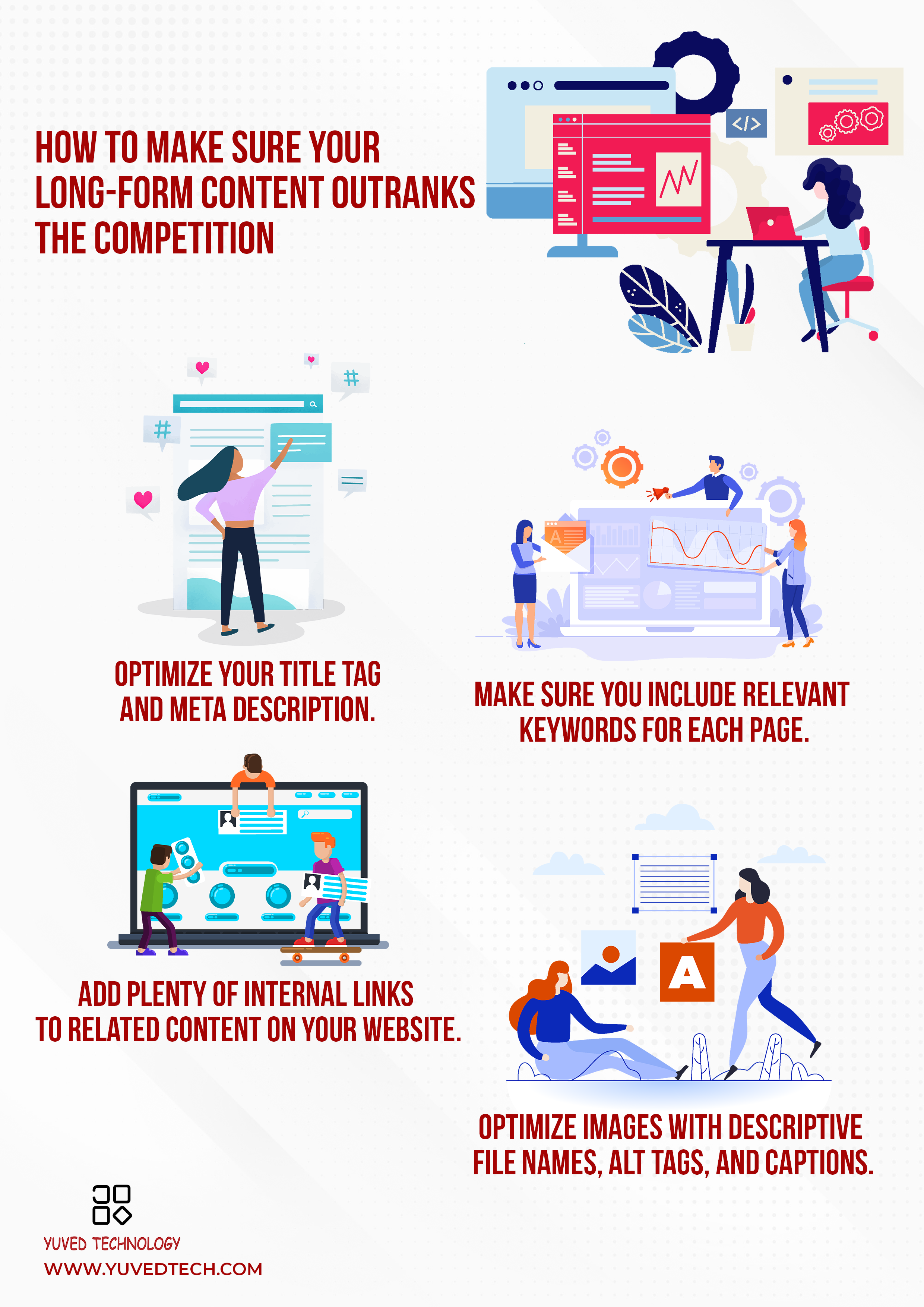Optimizing long-form content is a great way to boost your chances of outranking the competition in search results. By taking the time to ensure your long-form content is properly structured and optimized for search engines, you can increase your visibility and make sure your writing is seen by as many people as possible.
Optimize your title tag and meta description.
When optimizing long-form content for search engine optimization (SEO), one of the most important steps is to make sure your title tag and meta description accurately describe the content. Your title tag should be no more than 60-70 characters, with keywords towards the front. Your meta description should also include relevant keywords and be 160 characters or less. This will help your content stand out from the competition in search results and drive more traffic to your site.
Make sure you include relevant keywords for each page.
Keywords are one of the essential elements to consider when optimizing long-form content. When creating a web page, make sure you include relevant keywords in your title, heading tags, body content, and meta description. This helps to ensure that your page will appear high up in search engine results for relevant searches. Additionally, make sure that you use different keywords for each individual page, as repeating the same keywords can hurt your ranking rather than help it.
Add plenty of internal links to related content on your website.
While keywords are an important part of optimizing your long-form content, it’s also important to include plenty of relevant internal links on the page. Internal links help to give your readers a more in-depth understanding of the topic and can keep them engaged with your website for longer and even lead them to other pages related to the topic. This also helps search engines understand more about the content on your website and can use this information to rank your website higher for related searches.

Optimize images with descriptive file names, alt tags, and captions.
Images are a great way to engage your readers and add extra context to your content. To ensure that the images in your long-form content are optimized for search engine rankings, make sure to use descriptive file names, alt tags, and captions. Alt tags should accurately describe what the image contains, while captions should explain why the image is relevant. This is a crucial step in optimizing long-form content for search engine rankings.

